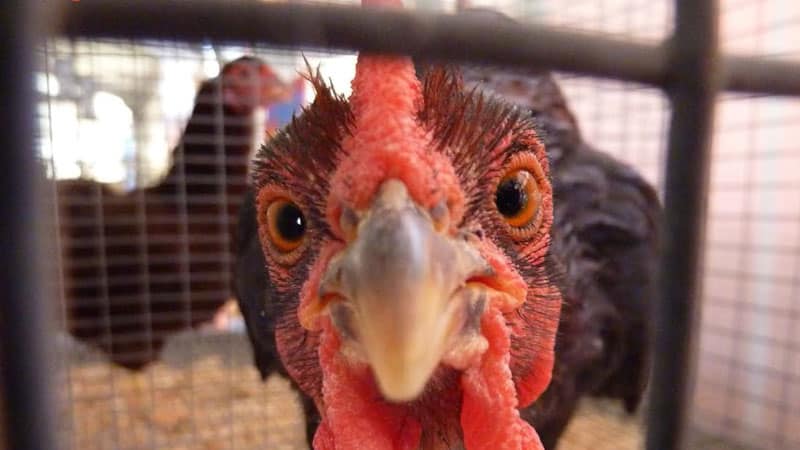Peck, peck, peck.
Turkeys and chickens love to peck. If you watch them at a farm, their heads seem to constantly bob up and down to pick up seeds, insects, grass, nuts and other plants with their beaks.
These birds don’t just peck for food. They establish a pecking order within their flock by actually pecking each other! Some birds are more powerful than the others, and they like to make that known. That may explain why a group of domesticated turkeys is called a gang.
Gangs are run by the toughest and meanest bullies. They rule through fear and intimidation. Turkeys act the same way.
Pecked to Death
The toughest turkeys pick on everybody else. By staying at the top of the pecking order, the strongest birds get to eat first and rule the farmyard.
The pecking doesn’t stop with setting up an order. If a bird looks different or is injured, watch out!
Some turkeys develop a “dropped crop.” The crop is a food storage pouch near the turkey’s throat. If a bird’s stomach is full, the sack-like crop stores the extra food, softening it before its trip to the stomach. When a crop gets clogged or develops an infection, it can grow and start drooping.
Because this turkey looks different and probably feels sick, the others single him out. Then the most powerful turkey starts pecking. Soon his buddies join in. They start picking on the weaker bird’s feathers. If someone doesn’t stop them, that bird could die.
Sometimes after turkeys establish a pecking order, a new bird joins the flock and throws everything off. Where does the new bird fit in? This change causes fights in the gang as the turkeys try to place the new bird within the structure of the group.
Pecking Order
Does any of this turkey talk ring a bell? Perhaps a school bell. Think about your classmates. Are there a few kids who seem to have all the power? They decide what’s in and who’s cool. A social pecking order exists at most schools.
Some kids are at the top. Some stay hidden or follow the leaders in the middle. And then there are the kids who people tease and pick on.
If the “top turkeys” see someone they think is too fat, too skinny, acts strange, dresses weird, talks funny or irritates them, it’s pecking time! Maybe they don’t physically peck at them. They might not even make comments to their face. But they let “different” kids know their place in the pecking order by texting insults, posting comments on social media, ignoring them or talking behind their backs.
New kids often get pecked on, too. When they join a new school or youth group, they might have trouble finding friends and fitting in.
For the Birds
When it comes to a pecking order, there are three groups: birds who are pecked, those who do the pecking and those who stand by and watch it happen. Where do you fit in?
If you find yourself joining “the gang” and picking on somebody who’s different or new, check yourself. Ask if your actions reflect your faith in Jesus. Instead of singling out somebody, help him feel part of the group. Talk. Be a friend. Make everyone feel comfortable.
God tells us that our words overflow from our heart (Matthew 12:34). The Bible also talks about our words in James 3:8-10: “No man can tame the tongue. . . . We praise our Lord and Father with it, and we curse men who are made in God’s likeness with it. Praising and cursing come out of the same mouth. My brothers, these things should not be this way.”
God hears what we say to people. He’s present with every word that comes out of our mouths. He wants us to speak words of hope and encouragement. He wants us to show His love through our actions.
So don’t be a turkey! Stop pecking and try to stop others from pecking, too, because every peck hurts.
When Feathers Fly
Turkeys don’t just peck sick or outcast birds. Sometimes they develop a protein deficiency when they don’t get the nutrients they need from their food. This can cause feather eating— picking feathers off of another turkey.
Bullies often have deficiencies, too. It probably isn’t a lack of protein, but they might be hurting inside from loneliness, fighting parents or feeling inadequate. If you get picked on, don’t offer the bully a protein bar. Pray for him or her and bring in a parent to help with the problem.













